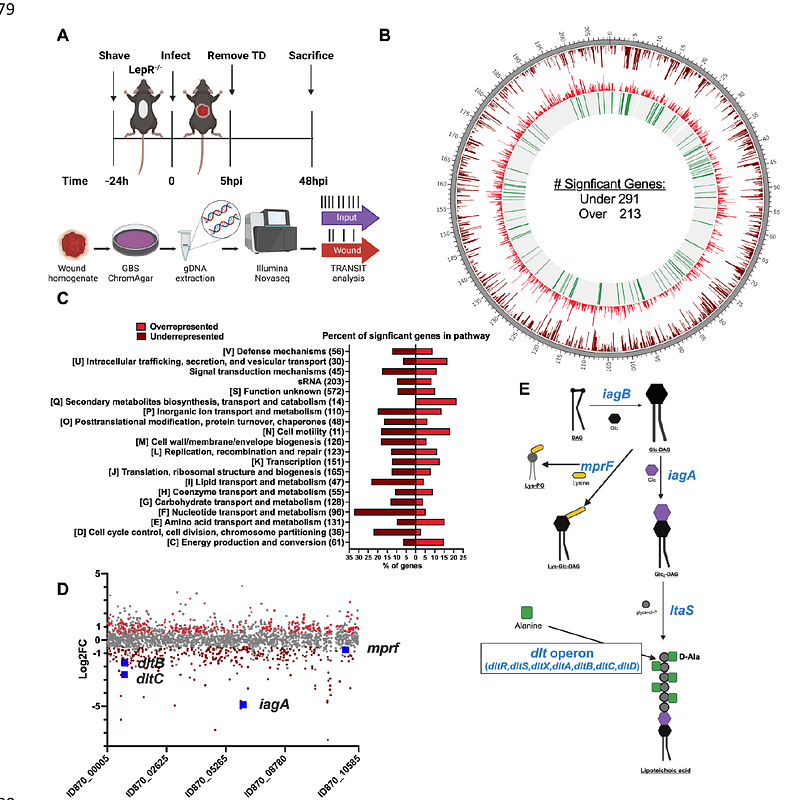Global genome analysis identifies glycolipids and lipoteichoic acid alanylation as contributors to Group B streptococcal diabetic wound infection

Global genome analysis identifies glycolipids and lipoteichoic acid alanylation as contributors to Group B streptococcal diabetic wound infection
Joyce, L. R.; Akbari, M. S.; Nguyen, D. T.; Spencer, B. L.; McIver, K. S.; Horswill, A. R.; Doran, K. S.; Keogh, R. A.
AbstractIndividuals with diabetes frequently develop chronic, hyper-inflammatory, non-healing wounds, which are the leading cause of all non-traumatic amputations. Group B Streptococcus (GBS) is a prominent bacterium isolated from diabetic wound infections and in a murine model of diabetic wound infection, GBS stimulates an influx of neutrophils into the wound. Utilizing a transposon mutant screen, we identified 291 genes required for fitness during diabetic wound infection including enzymes involved in glycolipid biosynthesis and lipoteichoic acid (LTA) alanylation. GBS mutants lacking either LTA alanylation ({triangleup}dltA) or lacking all glycolipids ({triangleup}iagB) are attenuated in a murine diabetic wound infection. GBS induces primary and secondary degranulation in primary human neutrophils and the {triangleup}iagB mutant is significantly more susceptible to neutrophil killing by cationic antimicrobial peptides and reactive oxygen species than {triangleup}dltA. Finally, we found that depletion of neutrophils led to significantly greater bacterial recovery, highlighting the importance of neutrophil defense during diabetic wound infection.